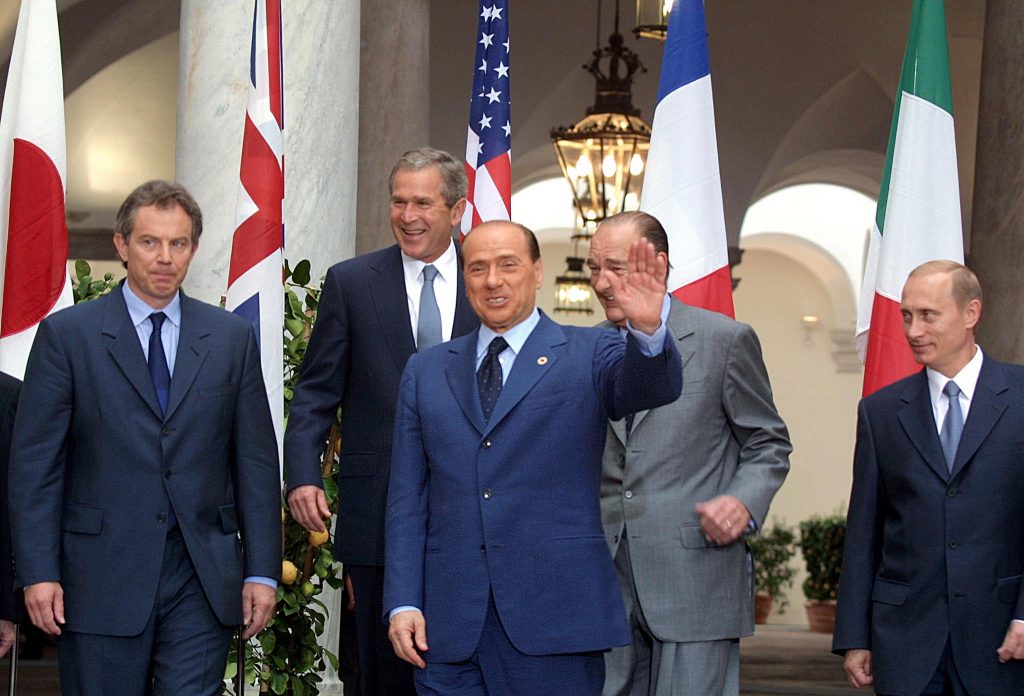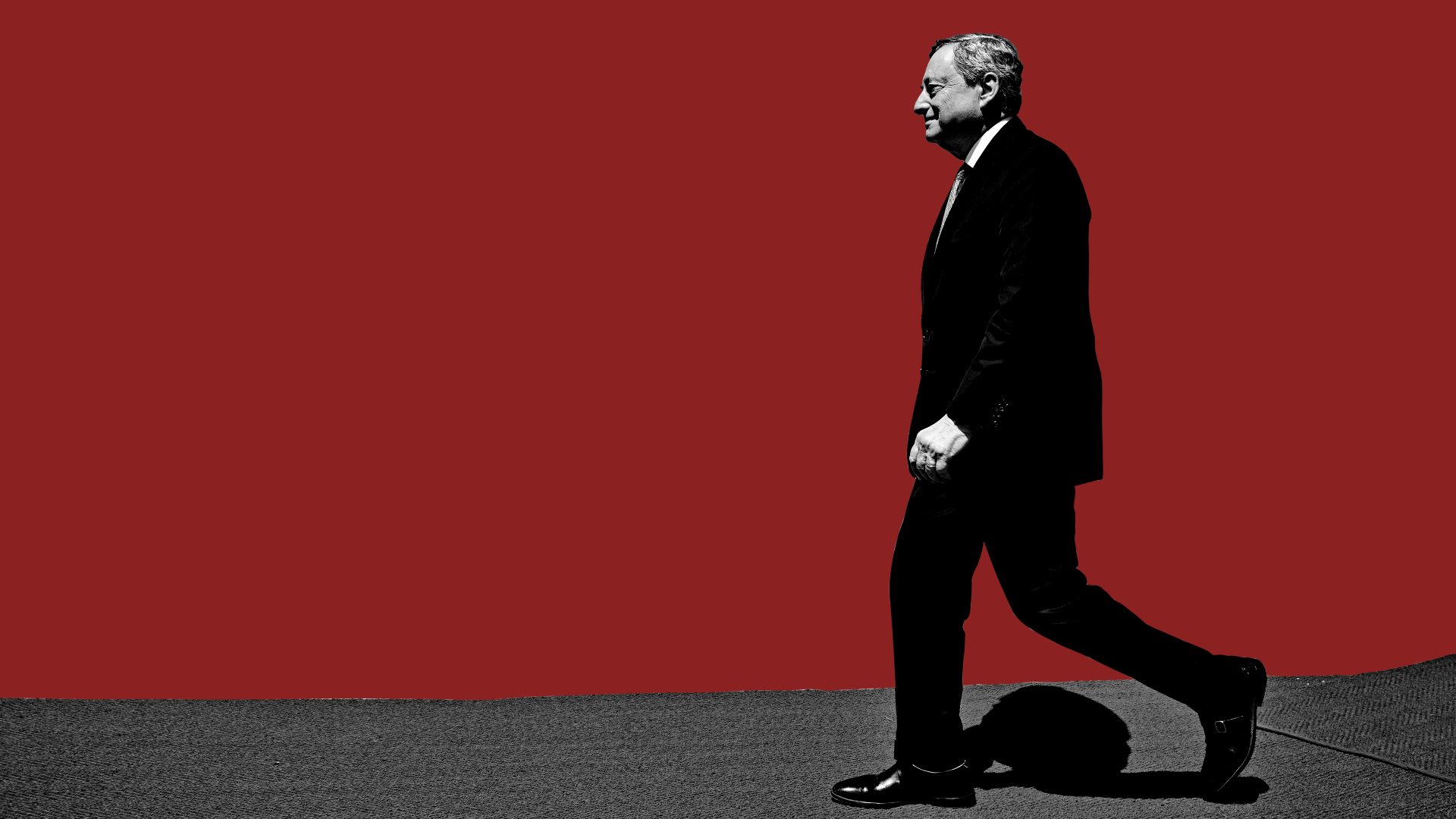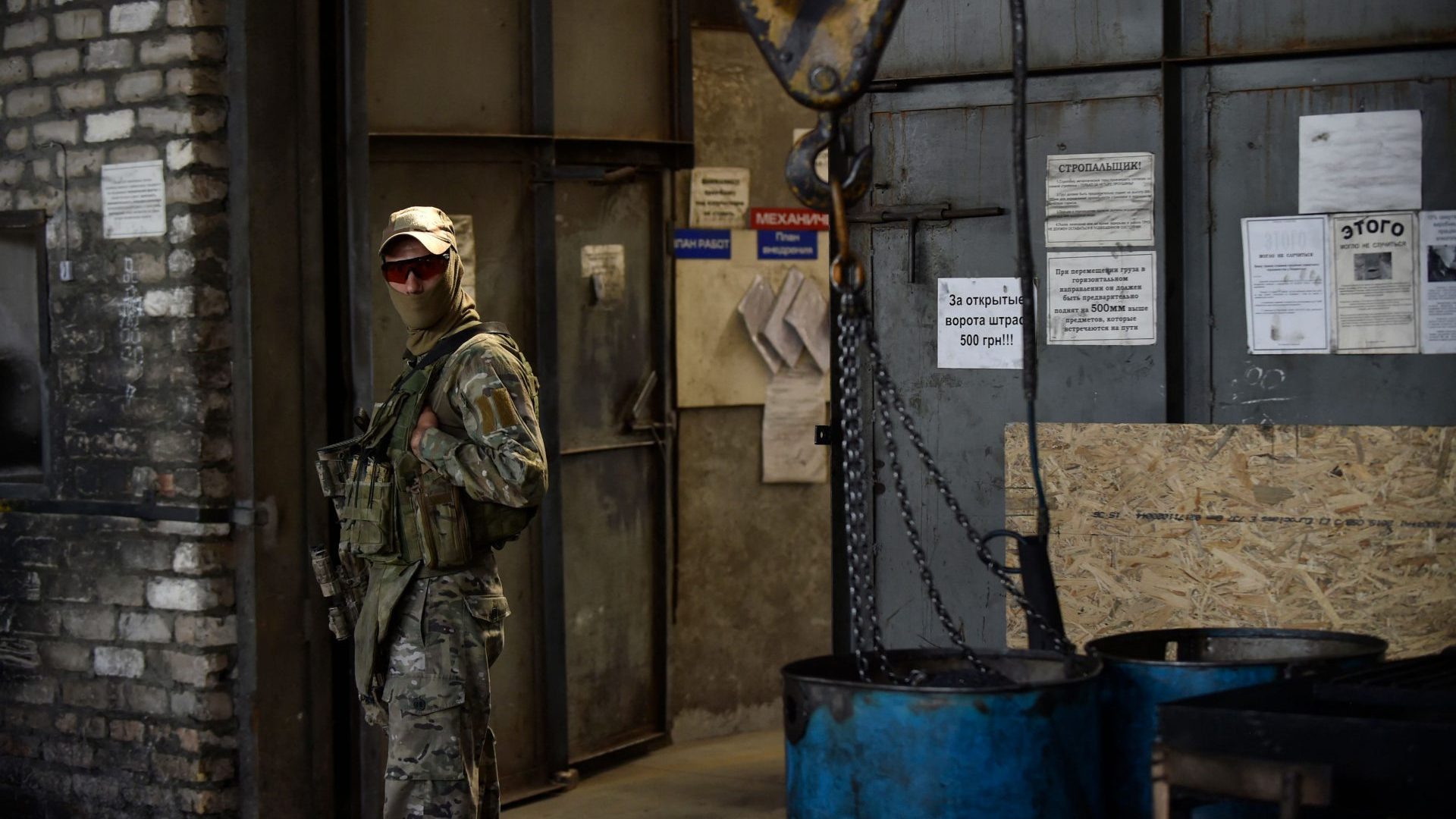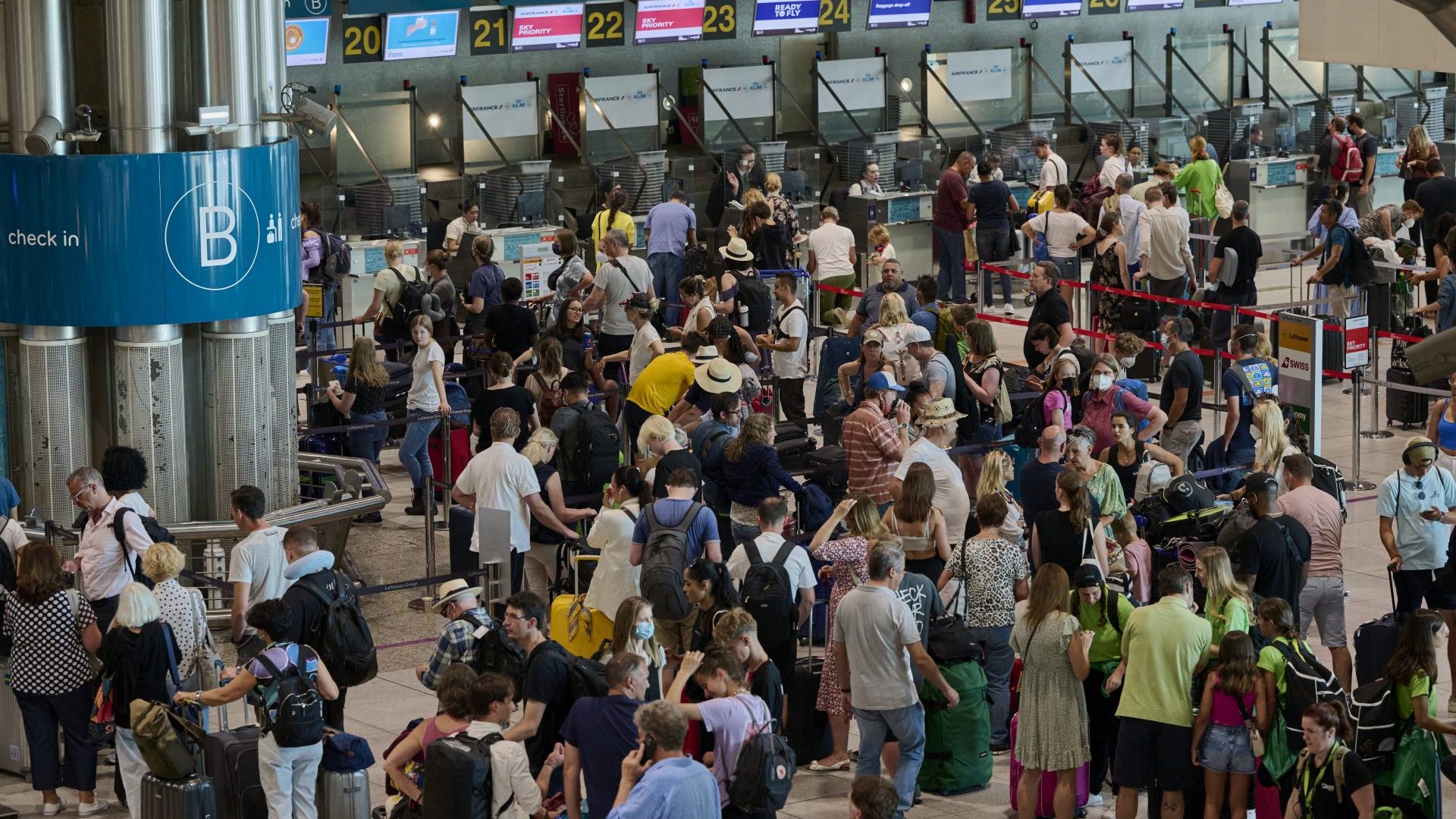On July 19, at a villa along the Via Appia Antica – an ancient gateway from the Italian capital to what was the Roman Empire in the east – leaders and movers in Italian politics convened for a lunch that lasted well into the evening.
Its purpose was to secure the ousting of prime minister Mario Draghi, who is popular at home and internationally. Draghi is the former director of the European Central Bank, engaged by Italian president Sergio Mattarella to deploy his economic experience and navigate the country through rough seas, post-Covid-19, and now the entwined crises of energy and living costs, and war in Ukraine.
Italy’s ship was sailing relatively well, all things considered, with Draghi’s policies dependent on a precarious coalition but endorsed by the European Union, which had entrusted him with the management of an incremental “Recovery Fund” of more than €200bn.
So the lunch couldn’t look like a conspiracy. The plotters had to appear to endorse Draghi’s endeavour and coalition – but on their terms; the meeting ended with a call to Draghi, and a statement of support. But it was brilliantly duplicitous, for it contained two demands: one, the governing coalition be purged of the 5-Star Movement (something that Draghi had rejected in advance); the other, that there be a clean break so that the new government would have a different programme – presumed to be a conservative one, with no concessions to the coalition’s centre-left elements. Draghi was made an offer he could not accept.
There at lunch was coalition member Matteo Salvini, leader of the right-wing Lega (League), taking calls throughout the afternoon from his ally – although in opposition – Georgia Meloni, leader of the also far-right Fratelli d’Italia (Brothers of Italy) party.
And there was the host, the master manipulator, and of ceremonies: 85-year-old oft-times former prime minister himself, Silvio Berlusconi, founder and leader of the mercurial centre-right Forza Italia party, with his new wife Marta Fascina, more than half a century his junior, on his arm.
The venue was the elegant Villa Grande, amid its own glorious gardens, with a curious recent history. Berlusconi acquired it 20 years ago, and under an Italian system called nuda proprietà (naked ownership) leased it gratis to the late film director Franco Zeffirelli, thereby securing the cinematic maestro’s loyalty. Since Zeffirelli’s death in 2019, it has been Milan-based Berlusconi’s pied à terre in the capital.
The hand of Berlusconi at this moment in Italian, and potentially European, politics – and at a convulsive time, internationally – is remarkable, even by his own standards of political stamina and ubiquitous presence.
Berlusconi invented the current mutation of what is lazily termed ‘populism’. His influence on the way electoral politics has been conducted over the last three decades, not just in Italy but everywhere, has been underestimated. He was the original faux-clown; the supposed maverick that isn’t; ‘friend of the people’ who pledges to champion their cause against ‘the establishment’, while being in reality the establishment on legs.
The posture and aura of Berlusconi’s way of doing politics was aped and adapted by Donald Trump – “Drain the Swamp!” – and Boris Johnson – “Take
Our Country Back!” – with great efficacy, both of them the voice and choice of the majority in their day. Berlusconi was imitated by Italy’s own Beppe Grillo, a real clown whose 5-Star Movement played its part in Draghi’s downfall. The currently elected rulers of Poland and Hungary take a leaf from Berlusconi’s book, as do Jair Bolsonaro of Brazil on the right, and Mexico’s Andrés Manuel López Obrador on the left. But just as most of these seem to beat – or be about to beat – a retreat of one kind or another, Berlusconi – Il Cavaliere, the Cavalier – outlives them all, politically and in vintage, to remain as cogent as ever.
Flashback to March 1994: my term as correspondent in Italy for the Guardian was coming to a close – years that had seen an entire political class and generation come under arrest for corruption; end of an epoch wherein Italy had been rebuilt by a balance of Christian Democracy and various shades of socialism and western communism, and at times torn apart by political violence. A gulf opened up at the apex of power, contested between an alliance of left and liberal parties, and what remained of the governing right wing, now charged by the racist, separatist Lega Nord (Northern League), an Allianza Nazionale with roots in neo-fascism and the candidacy of a media and property tycoon not from out of the blue, but entirely new to politics: Berlusconi.
Berlusconi named his party Forza Italia after the slogan used to cheer on the national football team at the World Cup hosted by Italy in 1990, and the upcoming 1994 championship in America. He campaigned with then modern methods of focus groups and marketing, on vague promises to end
corruption; though a billionaire, he would be a man of the people. Election rallies were extensions of his TV shows: bouncy girls and razzmatazz.
Few believed it could happen. My successor John Hooper arrived – it was our ‘handover’ story – and our host and editor at the Rome bureau of La Stampa of Torino, Marcello Sorgi, advised us to hear and heed the voices in Milan and Cagliari, by way of sure-fire barometer. When we returned to the capital, we all agreed on what was about to happen. “Cassandra!” people said – but Cassandra was right, Troy fell, and Berlusconi won.
Who’d have thought then that nearly 30 years later, Berlusconi would still be at the political helm, not with 80-year-old Bossi, but the younger man cast in his mould for the 21st Century – Salvini – and 45-year-old Meloni, whose variations on a theme of neo-fascism are tipped to secure her succession to Draghi after likely elections in the autumn.

This is no place to recount fully the saga of Berlusconi, but a few points are perennially salient. First, the man who urged and engineered Berlusconi’s entry into politics was Marcello Dell’Utri, whom Berlusconi had known when they played football together in Milan as students. They could not have been less alike: Silvio the crooner on cruise ships, Marcello the Sicilian with a connection to Opus Dei. But Dell’Utri became ambassador of Berlusconi’s Fininvest commercial empire to Cosa Nostra and vice-versa (he was later convicted of mafia association), and a Forza Italia senator. It was the perfect alliance, between mafia in the south, media and capital in the north.
Also this: from the start, Berlusconi was all things to all men, and – famously – women. While scandals and indictments accumulated, PM Tony Blair, for instance, crowned Berlusconi his closest ally in Europe. There was a famous visit to Tuscany, with fireworks reading “Viva Tony”, and an array of lavish gifts in both directions. Berlusconi had long been stitched deep into Labour Party fabric: Fininvest’s corporate lawyer, circulating Berlusconi’s money through tax havens, was David Mills, husband of the late Labour minister Tessa Jowell, whose conviction in Italy for receiving bribes expired under statute of limitations. Mills’ London offices were raided by the Serious Fraud Squad, on request of the Italian financial police, and documents seized, just as Blair and Jowell prepared for their victorious election of 1997. Prime minister Berlusconi sought to prevent their return to Italy through the High Court in London – without success. But everyone pretended this was not happening – that is how Berlusconi worked and still works. So long as no one joins the dots, the faux-clown will have the last laugh.
There have been two principal books about Berlusconi in English (and many, mostly excellent and without mercy, in Italian). One of those is Berlusconi’s Shadow by David Lane, the extended version of an open letter published in the Economist in 2003, detailing and denouncing Berlusconi’s criminal and immoral record. The second is an “authorised” biography by Alan Friedman, based on several interviews that were certainly not available to Lane, and from these emerge details of the one theme that unites many of these ‘faux-clowns’, and haunts the present crisis – Vladimir Putin.
Everyone knows that before Putin became the bête noir of 2022, the faux-clowns were his playthings in the west. Donald Trump and the Russian
premier were infamously close; Johnson’s Brexit campaign was gratefully open to Russian meddling, and before he flipped to profess support for Ukraine, Johnson mentored Russian oligarch Evgeny Lebedev from a KGB family, and elevated him to the House of Lords against security service advice. Never mind France’s Marine Le Pen, Hungary’s Viktor Orbán, or many around Labour’s Jeremy Corbyn – all with their various connections to
Putin.
But Berlusconi and Putin have a more enduring mutual friendship and
admiration. It can be traced to a NatoRussia summit in 2002 hosted by Berlusconi in Rome, photographed beaming with Putin, Blair and presidents George W Bush and Jacques Chirac. That same year, Berlusconi was a guest at Putin’s dacha on the Black Sea. In 2010, Wikileaks produced documents from within the US State Department claiming a close business relationship between the two men (denied by both).
Berlusconi visited Crimea shortly after the 2014 invasion of the peninsula, to taste vintage sherry and proclaim Putin as “numero uno” among world leaders. Here is Berlusconi’s description of the man currently assailing Ukraine, to Friedman: “A really sensitive person, a man of profound feelings, always respectful of others. He is a very gentle man, with a delicate sensibility”.
Berlusconi’s closest ally at the Villa Grande lunch was Salvini, whose Lega,
(they dropped the “Northern” to attract support in the south Bossi insulted and disdained), was until recently the biggest party in Italy. In 2017, Salvini signed a twinning between the Lega and Putin’s United Russia party. Examining magistrates in Milan have an open file investigating funds from Moscow to the Lega, which are denied by the party.
In March, Salvini was humiliated by the mayor of the Polish town of Przemyśl, near the Ukraine border, Wojciech Bakun, who greeted his
Italian visitor with a replica of the t-shirt Salvini had modelled in Red Square, during the invasion of Crimea, emblazoned with a portrait of Putin in a military cap and the slogan “Army of Russia”. (Salvini sported the same
garment at the European Parliament saying he would swap two president
Mattarellas for “half a Putin”.) In May, it emerged that the Russian embassy
to Rome had paid for a sanctions-busting visit to Moscow for Salvini and
his entourage – Salvini said the trip was to try to stop the war.
Salvini’s partner on the far right, Meloni, is also his nemesis: no faux-clown for sure, and stridently opposed to Putin, creating a rift down the right. When it came to a vote on arming Ukraine, Berlusconi and Salvini joined
other party leaders in supporting it, though their comments to the media
have qualified the gesture.
So what happened to bring down Draghi, and why?
It began with the strange case of Giuseppe Conte, a law professor from Florence who, as prime minister, steered Italy through Europe’s first and worst Covid-19 crisis with authority and ability – achieving soaring popularity ratings for an incumbent. But Conte then took over leadership of the 5-Star Movement – a maverick party founded by Grillo, which has wavered wildly between Euro-scepticism, anti-immigration, anti-corruption, and latterly ecology – part of the Draghi coalition.
But earlier this month, Conte presented Draghi (his replacement, whom he never quite forgave for that) with a nine-point programme, on which 5-Star’s continued support was conditional. This included a minimum wage, not an unpopular demand. But it was a bizarre, suicidal move – 5-Star were turned down, withdrew its support from a first vote of no confidence, and Draghi
resigned.
The right saw, and seized, its opportunity. Italy’s leading pollster Antonio Noto, whose research firm Noto Sondaggi never misjudges the political weather forecast, observes: “There are going to be elections next March anyway. And what would the right wing present to voters if it was in coalition with the centre-left? It suits them better to go to the electorate with a clear programme of their own: the old policies on taxes, immigration and pensions – but they also need new ones, such as poverty, inflation and the cost of living”.
Noto qualifies the Villa Grande “plot” narrative. “I think Draghi wanted to go anyway”, he says. “The coalition had continued for 18 months with almost all parties in government – it was unsustainable. Draghi had reached the point at which he’d had enough; it had to be: ‘Either everybody or nobody’. Also, everyone knows that there’s an economic crisis coming in October, and Draghi does not necessarily want to be at the helm of that. He probably didn’t even want to be a candidate in March”.
Conte, says Noto, “made the terrible mistake of becoming leader of 5-Star, a
party in decline. He was popular, he had his own following: polls show that had he founded his own party, centreprogressive, it would poll some 20%, and reduce the (centre-left) Partito Democratico to 13%. As it is, 5-Star currently polls around 10%”.
This is how the other parties stand, according to Noto: Fratelli d’Italia on
23-24%; Partito Democratico on 21-22; the Lega down to 14 – and Berlusconi’s Forza Italia to only 8 – though its figurehead pulls the strings. Rightwing parties look set to win 46-47% in an election, which under Italy’s
partially proportional system wins a parliamentary majority, and would hand Meloni the premiership, with support from Salvini and Berlusconi.
During the early 1990s at La Stampa, we called Marcello Sorgi il gufo saggio, the wise owl, for his wry diagonal gaze, and political crystal ball. He went on to edit the paper, head RAI Television and write books including an account of the love affair between Benito Mussolini’s daughter Edda Ciano and a Communist partisan hero, and a discourse with his friend Andrea Camilleri, creator of Inspector Montalbano, on their shared Sicilianità (Sicilian-ness).
Sorgi now reflects on that lunch meeting, and its ramifications. Meloni declined to attend, he says, “not just because she is in opposition, unlike the others in the coalition, but because she didn’t want to be seen as part of a
Berlusconi initiative; she wants to be her own boss, and is the likely coming
princess of Italian politics. Also: she hates Berlusconi, and contested him when she was Minister for Youth. She has a different story to him – she’s a real right-winger”.
What is it about Berlusconi? “He’s part of Italy’s animus. He offered an alternative to traditional Italian culture; he replaced priests and clothed
dancing girls on TV with dancing girls in bikinis; he built AC Milan to be one
of the best-ever football teams. He offered Italians a fantasy view of themselves: rich, successful, always with pretty women – which might appeal to half the population at least. His characteristics are not that of the
average Italian, but rather what part of them would like to be”. He also
“liberated the middle class” with the abolition of inheritance tax.
Yet in the real world, Italy “will feel nostalgia for Draghi”, predicts Sorgi.
“Since the death of Giovanni Agnelli [Fiat boss and industrial patriarch], Draghi has become the most widely respected Italian in the world. A man
of serious government: during 18 months, he never gave an interview on
television, never made an exhibition of himself like the others. Lavoro e
basta – work and only work – that’s Draghi. His departure will have
consequences – a budget package worth €23bn will be more than halved
– and the Italians will feel those consequences”.
Yet Draghi, says Sorgi, in agreement with Noto, “was ready to go the moment he failed to become president of the Republic in January. That was what he really wanted”. Apropos of which, there’s a twist: Draghi was not the only man with his heart set on the presidency.
The irrepressible Berlusconi has already declared his intention to stand again for the Senate, from which he was expelled in 2013, after the highest
court in the land, the Cassazione, ended his perennially narrow scrapes with justice and upheld a conviction for fiscal fraud. (The Senate ban was lifted in 2018.)
But Sorgi has learned more than that. “There is an agreement that if the right is victorious, Berlusconi will become president of the Senate. Now: unlike America, Italy has no vicepresident of the Republic. This role falls to the president of the Senate. So just imagine: if the president is travelling abroad for any length of time, or is unwell… There we have it! After all this time, at last: Berlusconi, head of state”.



